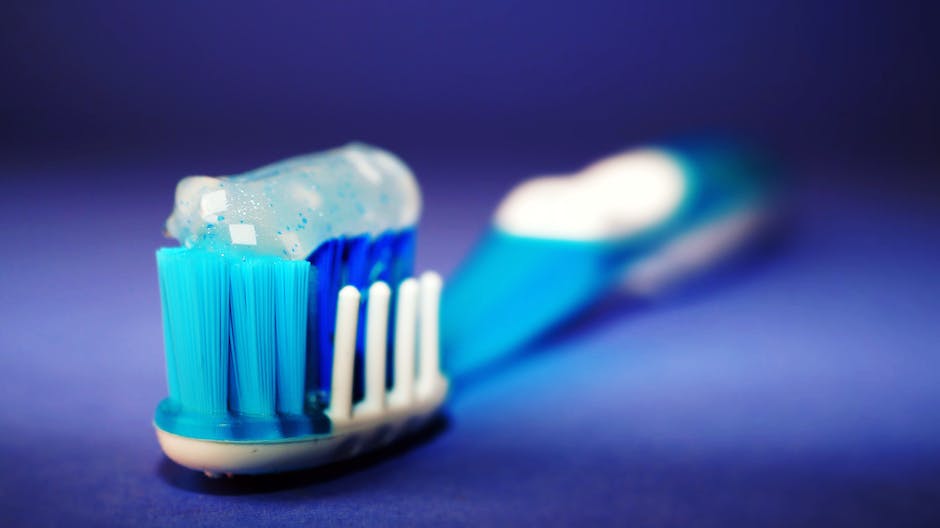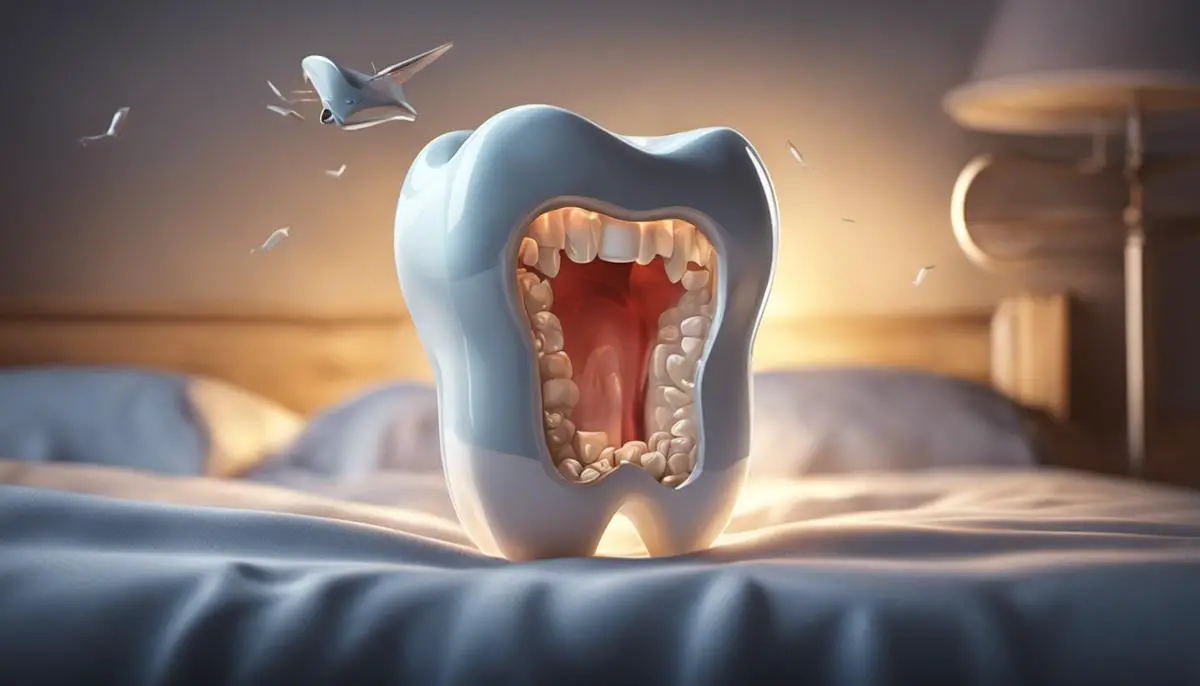The realm of the subconscious where dreams occur is a fascinating sphere that has intrigued humans throughout history. Among the many forms of dreams people commonly report, those relating to tooth loss stand out in particular for their frequency and emotional impact. This exploration will delve into the historical context of these dreams, examine their modern psychological implications, and evaluate their connection to anxiety and emotional stress. Based on established elements, we will delve deeply into the theories that underpin how we process and decipher dreams. Furthermore, this discussion will equip readers with practical actions to take after experiencing a tooth loss dream. Prepare to unravel the mysteries behind tooth loss dreams, backed by ancient folklore, classical psychoanalysis, current research, and informed advice.
Ancient Beliefs About Tooth Loss Dream
Ancient Roman Beliefs About Tooth Loss Dreams
In ancient Rome, dreams about teeth falling out were believed to symbolize death. It was thought that if a tooth fell out in one’s dream, it symbolized the imminent death of a family member or close acquaintance. This was further extrapolated from the fact that the tooth, once separated from the body, could neither be reattached nor regrown, just as a person could not come back to life once dead.
Indian Interpretations About Tooth Loss Dreams
Traditional Indian interpretations of dreams also associate tooth loss with death, specifically the death of a loved one. However, certain Indian cultures also attribute such dreams to anxieties or doubts in waking life. Specifically, teeth falling out dreams have been thought to reflect apprehensions about making difficult decisions.
Chinese Folklore and Tooth Loss Dreams
Chinese folklore, on the other hand, has a more positive take on such dreams. In their culture, a dream about teeth falling out is considered a sign of luck and prosperity. It is thought to suggest that the dreamer will soon be blessed with a windfall or good fortune. According to ancient Chinese belief, if you dream of a loose tooth, it means that you’re about to have a family reunion or a long-lost friend is about to return.
Aboriginal Beliefs About Tooth Loss Dreams
Aboriginal Australians, on the other hand, saw teeth falling out dreams as representing transition or change. Teeth, for them, symbolized growth and transformation, considering the significant changes in a person’s teeth from infancy through adulthood. Losing teeth in a dream was hence seen as a sign of transitioning from one phase of life to another.
Persian Interpretations of Tooth Loss Dreams
In ancient Persian culture, dreams about teeth falling out were considered warnings. They were believed to reflect troubles or mishaps that may occur in the near future. If the dream involved pain while the teeth fell out, it was considered a strong warning sign of an impending disaster or calamity.
Final Observations
Dreams about teeth falling out have been a curious yet prevalent subject in various cultural narratives and interpretations across different eras and geographic locations. Such dreams have captured the collective imagination of humanity, fostering an array of interpretations from foreboding signs of death to omens of good fortune. Despite the widely different perspectives, it is evident that these dreams have captivated and intrigued us for many centuries.

Modern Psychological Interpretations
Interpretations by Sigmund Freud on Tooth Loss Dreams
Sigmund Freud, renowned as the pioneer of psychoanalysis and dream interpretations, bore a unique fascination towards dreams associated with teeth falling out. Freud proposed that these distinct dreams often symbolize personal power and an individual’s capability to control their surroundings. He believed that feeling powerless or losing control in one’s waking life can lead to such dreams.
Besides this, Freud also theorized that tooth loss dreams might express fear of aging or dying, linking the symbolic loss of teeth with the loss of vitality and youth. Such dreams could also represent fear of impotence, or the fear of different kinds of losses–a job, a relationship or even a loved one.
Freud, advocating the psychosexual stages of development, often perceived underlying sexual undertones in such dreams. He opined that these dreams could represent castration anxiety, particularly in males. According to Freud, when one dreams about pulling out teeth, it could be associated with fears of castration or emasculation.
Carl Jung’s View on Tooth Loss Dreams
In contrast, Swiss psychiatrist Carl Jung, the founder of analytical psychology, encompassed a broader perspective on tooth loss dreams. While he recognized some similarities in his interpretations with Freud, there were clear deviations as well. Jung did not solely associate the dreams with sexual symbolism or power dynamics.
Jung’s dream analysis is framed around the concept of archetypes – universally understood symbols or patterns that are common among all people, regardless of culture. To Jung, tooth loss in dreams might symbolize a transition period in life, reflecting the evolutionary process of losing baby teeth and coming into adulthood.
Jung theorized that dreaming about tooth loss could indicate that a person is going through a significant lifestyle shift or moving into a new stage of life, much like the process of shapeshifting from a child to an adult. It might also reflect the person’s fear or anxiety related to this change.
Modern Psychological Interpretations of Tooth Loss Dreams
Drawing upon Freud and Jung’s interpretations, contemporary psychologists propose that dreams about tooth loss can be associated with multiple factors, depending on the specific circumstances of the dream and the dreamer’s personal life context. Insecurity about appearances, fear of rejection or embarrassment, and feelings of transition or change are among common interpretations.
Some psychologists suggest that tooth loss dreams may be related to communication issues. Given that teeth are essential for speech, their loss could metaphorically imply the difficulty or inability to communicate effectively, possibly correlating with situations in waking life where one feels unheard or unable to express their feelings adequately.
Even stress and anxiety about dental health that have pervaded a person’s subconscious can manifest as dreams about tooth loss. People who grind their teeth while sleeping, a condition called bruxism often caused by stress, might be more prone to these dreams.
To sum it up, reading into dreams of losing teeth must be done with an understanding of one’s emotional health, personal circumstances, and unique brain chemistry. It’s imperative to note that while such insights can serve as a guide, they should not be used as a substitute for professional psychological assistance when the need arises.

Tooth Loss Dreams and Anxiety
Deciphering Dreams of Tooth Loss
Dreams centered around loss of teeth are not only prevalent but also fall into ‘typical dream themes’ – a concept designed to identify dreams shared by a substantial number of people. Even though these dreams are widespread, they often lead to discomfort and are largely tied to stress or anxiety. In the field of dream interpretation, also known as Oneirology, such dreams are thought to mirror the emotional or mental status of the person having the dream.
Dreams about Tooth Loss and Anxiety
Dreams about tooth loss can be correlated with the person’s stress levels. This is based on a psychological metaphorical interpretation which suggests such dreams may depict a fear of loss or changes in one’s life. They are commonly experienced by individuals going through stressful situations, major life changes, or those feeling a lack of control in their life. It is assumed that the act of losing something as substantial and vital as a tooth is an indication of anxiety about losing something else in waking life.
Tooth Loss Dreams and Self-Esteem
Tooth loss dreams can also be connected to problems with self-esteem and personal appearance. Teeth play an important role in physical attractiveness and speech. They are symbols of vitality and confidence. Losing them in a dream could relate to fears of aging, attractiveness or concerns about self-image. Some dream interpretation experts believe that tooth loss dreams might be associated with communication issues, suggesting the dreamer might be having trouble articulating their thoughts or expressing themselves.
Dreams and Mental Health
Research studies conducted on the subject reveal a connection between dreams of tooth loss and depressive symptoms or mental health issues. A study published in the journal “Frontiers in Psychology” found a significant association between dreams of teeth falling out and the participants’ depressive symptoms. Another study in the “International Journal of Dream Research” found recurrent dreams of losing teeth to be frequent in patients with mental disorder. It is important to mention that these findings highlighted the association but doesn’t establish it as a standard criterion for identifying mental health issues.
Dreams about tooth loss and their interpretations are rich and multifaceted, often tied to notions of stress, anxiety, and diminished self-esteem. However, they may not necessarily imply that the dreamer has a mental health disorder. Interpreting these dreams uniquely depends on your personal feelings, your current life situation, and your apprehensions. It’s key to note that if these dreams cause substantial distress, it could be beneficial to seek the advice of a mental health professional.

Photo by harshitsharma on Unsplash
Evolving Theories in dream analysis
Delve Deeper: Dream Analysis and the Meaning of Losing Teeth
The exploration of dream interpretation offers an intriguing crash course in psychology, a scientific theory rooted in ancient civilizations. Contemporary explanations range dramatically, from psychoanalytic theories that view dreams as a venue for the subconscious mind, to neurobiological theories that treat dreams as a side effect of our sleep patterns.
Famed psychoanalyst Sigmund Freud suggested that dreams about tooth loss symbolize castration anxiety or suppressed sexual yearning, based on his overall psychosexual development theory. On the other hand, Carl Jung, once an associate of Freud, proposed a more universal perspective, aligning dreams of losing teeth with experiences of transition, change, or even apprehension of getting older.
Shifts in Approaches Toward Dream Interpretation
A growing trend in the 21st century indicates that dream analysis is undergoing an evolution. Modern research recognizes the importance of individual and cultural contexts in influencing dream symbolism. The universal symbol interpretation, often associated with the Freudian or Jungian approaches, may offer hurdles for people from diverse backgrounds.
For instance, tooth loss dreams might not reflect worries about aging or sex but rather a sense of personal or professional loss, according to some cultural studies. It could signify failure, embarrassments, or potentially adverse changes in a person’s life, as many societies associate the state of one’s teeth with success and attractiveness.
Neuroscience and Dreams About Teeth Loss
The neuroscientific interpretation of dreams is gaining traction in the contemporary realm of dream study. Researchers propose that dream content could be related more to random electrical brain impulses, and how the forebrain interprets those reactions rather than deep psychological symbols. Amid this viewpoint, tooth loss dreams may not have significant psychoanalytical meaning but could be rooted in the physical sensations our sleeping bodies experience.
Dr. Matthew Walker of the University of California, Berkeley, suggests that dreams may not necessarily interpret our subconscious thoughts. Instead, when dreaming of teeth falling out, it might relate to feelings of pressure in the jaw or grinding of teeth during sleep, also known as Bruxism.
Current Debates and Ongoing Research
Debates surrounding dream analysis often revolve around the concept of universal symbolism versus individual interpretation. Some dream researchers believe in the existence of ubiquitous symbols, such as tooth loss, which carry the same interpretation across various individuals. Conversely, others argue that the insights gained from dream analysis are vastly personal, requiring context from the dreamer’s life experiences and emotions.
In essence, the interpretation of tooth loss in dreams largely depends on individual experiences and cultural contexts. Be it a marker of an imminent life transition, a manifestation of internal anxiety, or a consequence of physical discomfort, the symbolism of tooth loss in dreams continues to fascinate researchers due to its interpretive flexibility.

Practical Steps After Having Tooth Loss Dreams
Understanding Tooth Loss Dreams
The concept of losing teeth in dreams is a universal experience, but the interpretation can dramatically shift based on cultural, psychological, and personal factors. In traditional dream interpretation, losing teeth is often linked to fears of aging or a perceived decline in attractiveness. Contemporary psychology, however, regards these dreams as potential indicators of anxiety about losing control, weathering significant life changes, or managing stress.
Self-Analysis After Tooth Loss Dreams
After having a tooth loss dream, it’s beneficial to do a self-analysis. First, try to remember as many details about the dream as possible to get the most accurate understanding. Consider factors such as your feelings in the dream, the state of your teeth, and any other significant landmarks or characters present.
Second, reflect on your life experiences. Are your waking life situations causing you anxiety or significant stress? Are there big changes going on in your life? This introspection could reveal underlying issues that your subconscious might be addressing via the tooth loss dream.
Lastly, consider your attitudes towards aging and physical attractiveness. Are you feeling insecure about these aspects? The dream could be connected to these fears or insecurities.
Combating Anxieties After Tooth Loss Dreams
Tooth loss dreams often cause discomfort simply because of their vivid nature. However, these dreams are not a literal prediction but rather an insight into your psyche. Therefore, to mitigate anxieties after a tooth loss dream, you’d need to address the potential underlying issues.
If the dream is causing stress, relaxation techniques can be helpful. This could involve meditation, guided imagery, or deep breathing exercises. Also, stress-reducing activities such as reading, walking, or spending time in nature could provide relief.
Alternatively, seeking social support can be effective. Talking about your dream and current stresses with family, friends, or support groups can provide comfort, shared experiences, and advice.
When to Seek Professional Help
If you’re feeling overwhelmed by tooth loss dreams, it’s advisable to consult with professionals. Speaking with a psychotherapist or psychiatrist can offer immense help in understanding dream symbols and connecting them to your waking life experiences. These professionals can provide personalized support and therapeutic techniques such as cognitive-behavioral therapy, which may help address your anxieties and fears.
Alternatively, if the dream causes a high level of distress, or if the anxiety affects your daily life, then you may want to consult a mental health professional or counselor. They can provide you with tools to manage your anxiety and fears effectively.
Remember, dreams, including tooth loss, are a natural part of human psychology and can act as signals for personal growth or shed light on emotional challenges that need addressing.

Conceptualizing tooth loss dreams as metaphorical representations of personal apprehensions allows us to navigate through our fears and identify plaguing issues. The decoded wisdom from ancient beliefs, expert interpretations, and modern research highlighted throughout this exploration, equips the dreamer to perceive such dreams not as ominous omens, but as insightful guidance. However, it is also imperative to understand that these investigations form a general guideline, rather than a definitive directive. Each dreamer’s unique contexts, emotions, and experiences influence their dream interpretations. When troubling dreams persist, seeking professional help can be a beneficial step. In essence, the understanding of tooth loss dreams, designed to fear, can be transformed into a tool for self-examination, stress management, and personal growth.
